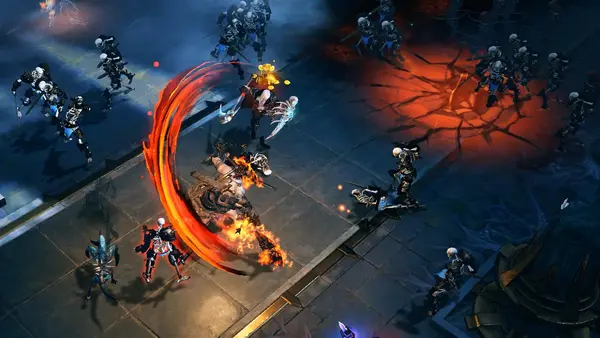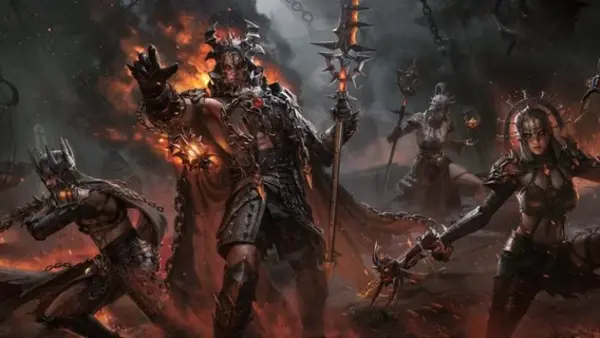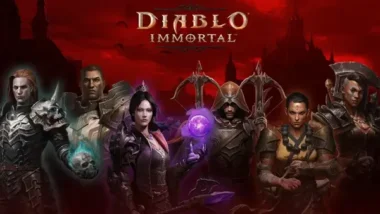Blizzard Entertainment’s Diablo Immortal was one of the most anticipated releases in the franchise, blending classic Diablo gameplay with mobile accessibility. However, its monetization strategy sparked widespread controversy, overshadowing the game’s core experience. This article examines the intricacies of Diablo Immortal’s monetization, its impact on the player base, and potential remedies.

Introduction to the Monetization Model
Understanding Microtransactions in “Diablo Immortal”
The game introduced a monetization model heavily reliant on microtransactions.
H3: Core Features of the Model
- In-App Purchases: Players can buy in-game currency to enhance their gameplay.
- Gacha Mechanics: Randomized loot systems tied to monetary investments.
H4: Subscription Options
- Monthly passes offer exclusive perks but lock core content behind paywalls.
Causes of the Controversy
Predatory Practices
Players have accused the game of employing manipulative monetization tactics.
H3: Pay-to-Win Elements
- High-tier gear and progression boosts available only through purchases.
H4: Psychological Triggers
- Use of fear of missing out (FOMO) to encourage spending.
Community Expectations
The Diablo franchise has historically emphasized skill over spending.
H3: Comparison to Previous Titles
- Diablo III offered a fairer playing field with no mandatory microtransactions.
H4: Legacy and Trust
- Fans felt betrayed by the shift in Blizzard’s philosophy.
Impacts on the Player Base
Alienation of Core Fans
Longtime Diablo players expressed frustration with the monetization model.
H3: Free-to-Play Limitations
- Non-paying players face steep progression barriers, limiting enjoyment.
H4: Loss of Player Trust
- Blizzard’s reputation suffered due to accusations of prioritizing profits.

Creation of a Divided Community
Monetization strategies exacerbated disparities among players.
H3: Pay-to-Win Discrepancies
- Paying players achieve dominance in competitive modes, creating imbalance.
H4: Impact on Social Dynamics
- Guilds and co-op experiences become strained by pay disparities.
Blizzard’s Response
Adjustments to Monetization
Blizzard implemented some changes following player feedback.
H3: Reduced Costs
- Lowered prices for certain in-game items to make them more accessible.
H4: Enhanced Transparency
- Clearer communication regarding drop rates and rewards.
Public Statements
The company addressed the controversy through developer updates.
H3: Acknowledging Concerns
- Blizzard admitted to some missteps in the game’s design.
H4: Commitment to Change
- Promised future updates to balance free-to-play and paid content.
Comparisons with Other Games
Lessons from Successful Monetization Models
Examining other games reveals strategies that avoid backlash.
H3: Path of Exile’s Cosmetic-Only Approach
- Optional purchases that don’t impact gameplay maintain fairness.
H4: Genshin Impact’s Balanced Gacha System
- Offers valuable rewards without forcing players to spend excessively.
The Dark Side of Mobile Gaming
Diablo Immortal reflects broader trends in mobile game monetization.
H3: Industry Norms
- Many mobile games employ aggressive monetization tactics.
H4: Consumer Pushback
- Growing demand for fairer practices in the mobile gaming space.
Potential Solutions
Revising the Monetization Model
Blizzard could adopt changes to restore balance and trust.
H3: Fairer Progression Systems
- Introduce grindable rewards to reduce pay-to-win reliance.
H4: Optional Monetization
- Focus on cosmetics and non-essential items rather than gameplay advantages.
Community-Driven Development
Involving players in decision-making can help address concerns.
H3: Open Feedback Channels
- Regularly solicit and act on community input.
H4: Transparency in Updates
- Clearly communicate changes to foster goodwill.
Broader Implications for the Industry
Setting Precedents
The controversy highlights the need for ethical monetization practices.
H3: Lessons for Future Games
- Developers must balance profitability with player satisfaction.
H4: Regulatory Scrutiny
- Governments are beginning to regulate predatory microtransactions.
Rebuilding Trust
Blizzard’s handling of Diablo Immortal could shape its legacy.
H3: Restoring Player Confidence
- Delivering promised changes and improving transparency are critical.
H4: Strengthening Fan Engagement
- Initiatives like Q&A sessions and community events can rebuild loyalty.

Conclusion
Diablo Immortal’s monetization controversy serves as a cautionary tale for the gaming industry. By addressing community concerns, revising predatory practices, and fostering open communication, Blizzard can turn this challenge into an opportunity to redefine ethical monetization.


